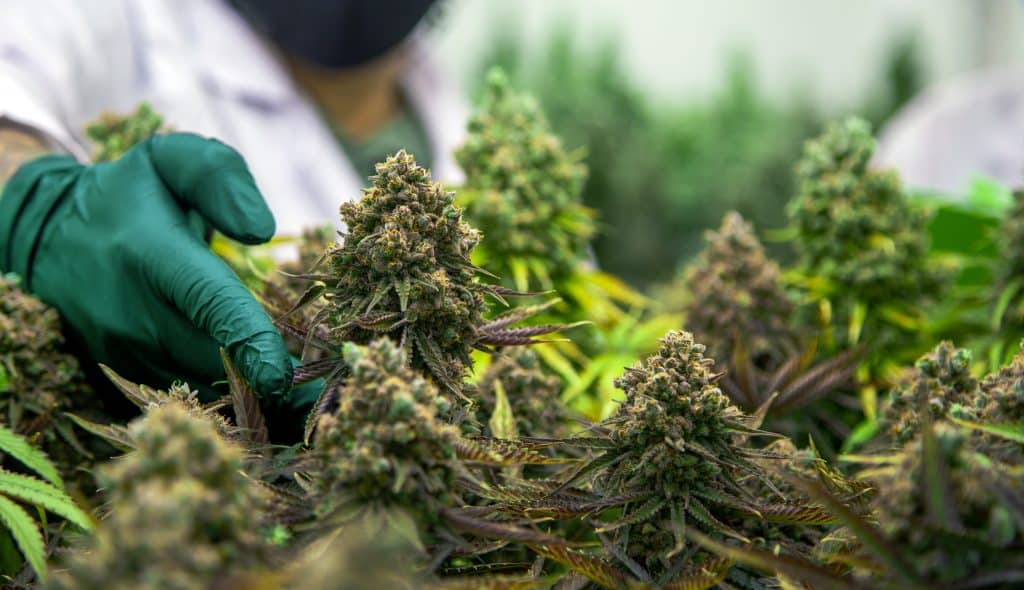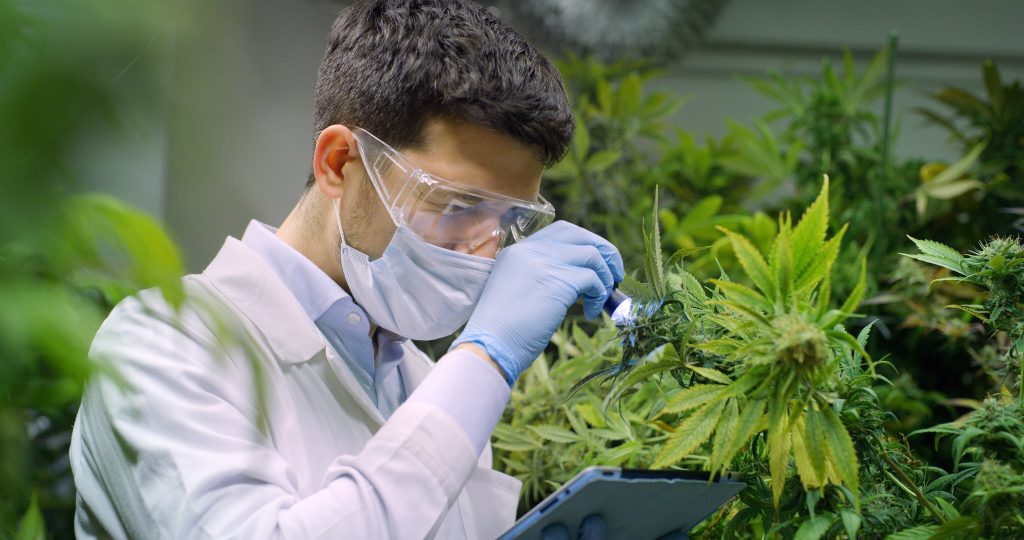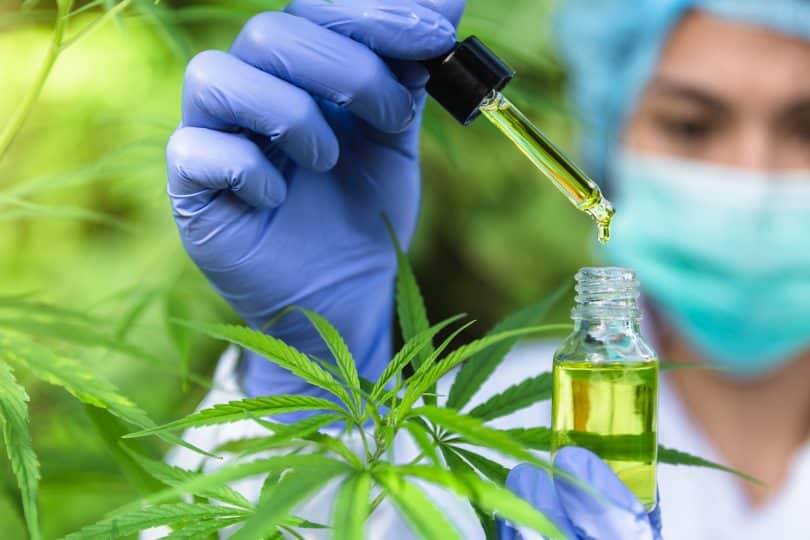Israel is known for being at the forefront of medical cannabis research and treatment. The country has a long history of using marijuana for medicinal purposes and has made significant advancements in developing new and innovative ways to use the plant for medical purposes. Recently, the Israeli Ministry of Health has made some changes to the medical cannabis program that will impact new patients.
THC Reduction in Israel’s Medical Cannabis Program: What Patients Need to Know.
One of the main changes to Israel’s medical cannabis program involves reducing the THC levels for new patients. Delta-9 THC, or tetrahydrocannabinol, is the main psychoactive component of marijuana and is responsible for the “high” feeling associated with its use. The Ministry of Health has decided to reduce the amount of THC available to new patients (defined as those receiving treatment for less than three months) to 10% or less. This is a significant decrease from the previous limit of 20%.
In addition, under the new changes to Israel’s medical cannabis program, new patients can only receive a maximum of 20 grams of dried cannabis flower (with a THC content of T10 or lower) or 30 grams of oil per month. This regulation is designed to restrict the use of stronger cannabis products among new patients, who are considered more vulnerable to the psychotropic effects of THC. However, as there is no formal research suppoering the reduction of THC for new patients, it might be that the aim of this reduction is not only to limit the potential side effects of the drug, but also to prevent the potential abuse of medical cannabis…
From what we understand today, this regulation is legally binding and cannot be overridden by a doctor, which means the system won’t allow the Doctor to prescribe flowers with T15 or T20 to new patients.
Another change to Israel’s medical cannabis program involves the process of obtaining medical cannabis. Previously, patients could only obtain medical cannabis through licensed growers and distributors. The new policy now allows patients to grow their own cannabis plants, but with certain restrictions. The patient must have a valid prescription and be authorized by the Ministry of Health. The plants must also be grown in a secure and enclosed area and must not be visible from outside the property. This change was made in order to give patients more control over the quality and purity of the cannabis they use for medical purposes.

In addition to these changes, the Ministry of Health has also made changes to the medical cannabis treatment protocol. The new protocol requires doctors to provide detailed information about the patient’s medical history, diagnosis, and treatment plan. This information will then be used to determine the appropriate dosage and administration of the drug. The aim of this change is to ensure that medical cannabis is being used effectively and safely for each individual patient.
Stay Informed on the Latest in Psychedelics and Cannabis
Stay informed about changes in cannabis and psychedelics regulations by subscribing to our newsletter, the Cannadelics Sunday Edition. This will give you access to our weekly best articles, as well as exclusive discounts on premium products through our “Deal of the day” offerings.
If you’re interested in daily updates, check out Cannadelics News on Telegram for a convenient and user-friendly way to stay informed. Enter your email below to receive news updates.
Want to learn more about changes to global medical cannabis programs?
Subscribe to our Weekly Newsletter
CBD is still illegal
The medical cannabis sector in Israel has experienced rapid growth in recent years, and the policy changes aim to sustain this growth and advance the industry while prioritizing the safety and health of patients. Nevertheless, some in Israel argue that the medical cannabis program is not expanding to cover more medical conditions, and that the Ministry of Health is preventing doctors from enrolling more patients, thus hindering its growth.
Despite the new restrictions on cannabis, CBD remains inaccessible to the general public and it is illegal to purchase without a license for cannabis. As a “Pharma state,” Israel continues to regulate all substances, including CBD, by only selling it in pharmacies to those with proper licensing. This is despite widespread support for legalization in Israel, and a law to legalize CBD was written over two years ago but was blocked by political maneuvering.
What is Delta-9 THC
Delta-9-Tetrahydrocannabinol (Δ9-THC or simply THC) is the primary psychoactive compound found in the cannabis plant. It is responsible for many of the plant’s effects on the mind and body, including its characteristic “high.” THC acts on the endocannabinoid system, a group of receptors in the brain and body, to produce its effects. It has been used for medicinal purposes, such as to relieve pain and improve appetite, as well as for recreational use, such as THC edibles, THC gummies etc. THC levels in cannabis can vary, and higher levels of THC are generally associated with stronger effects.
What is CBD
Cannabidiol (CBD) is a naturally occurring compound found in the cannabis plant. Unlike the primary psychoactive compound delta-9-tetrahydrocannabinol (THC), CBD does not produce the “high” typically associated with cannabis use. Instead, CBD has been reported to have a variety of potential therapeutic benefits, such as reducing anxiety, improving sleep, and reducing pain and inflammation. CBD has become a popular wellness product and is available in a variety of forms, including oils, tinctures, and edibles (such as CBD gummies). While the exact mechanisms by which CBD produces its effects are not yet fully understood, it is thought to interact with the endocannabinoid system, a group of receptors in the brain and body, to produce its effects.
What are the benefits of Delta-9 THC
Delta-9-tetrahydrocannabinol (Delta-9 THC) is the primary psychoactive compound found in marijuana. The potential benefits of Delta-9 THC include:
- Pain relief: Delta-9 THC has been shown to have pain-relieving properties, which can be beneficial for individuals with conditions such as chronic pain, arthritis, and multiple sclerosis.
- Anti-inflammatory effects: Delta-9 THC has been shown to have anti-inflammatory properties, which can be beneficial for individuals with conditions such as Crohn’s disease and ulcerative colitis.
- Appetite stimulation: Delta-9 THC can stimulate appetite, which can be beneficial for individuals with conditions such as anorexia or cachexia.
- Nausea and vomiting relief: Delta-9 THC has been shown to be effective in reducing nausea and vomiting in individuals undergoing chemotherapy.
- Anxiety and depression relief: Delta-9 THC can help to reduce anxiety and depression symptoms in some individuals.
It is important to note that while Delta-9 THC has shown potential benefits in certain medical conditions, more research is needed to fully understand its effects and to determine the appropriate doses and methods of use.
Which countries have well-established medical cannabis programs?
While medical cannabis programs are evolving in many countries, there are several that have well-established program, such as the ones below:
- Canada – Legalized medical cannabis in 2001 and adult-use cannabis in 2018, making it one of the pioneers in this field.
- Netherlands – Has a long-standing tradition of tolerance for medical and recreational cannabis use, making it one of the world’s leading exporters of medical cannabis.
- Israel – Considered a leader in medical cannabis research, with a well-established medical cannabis program and a thriving cannabis industry.
- Germany – Has a rapidly growing medical cannabis program, with many patients receiving medical cannabis through the national health insurance program.
- United States – Although the legality of medical cannabis varies by state, several states have well-established medical cannabis programs and a thriving cannabis industry.
These countries have a strong infrastructure and regulatory framework in place to support the growth of the medical cannabis program and to ensure the safety and well-being of patients.
Is Israel still a Democracy?
Israel was once a leader in cannabis research, boasting the most advanced medical cannabis program. However, its cannabis laws have fallen behind and are now among the least progressive. The needed changes might not take effect soon, as the current government, led by Netanyahu, is attempting to restrict democracy and civil rights by restricting the power of the supreme court (as in Israel there is no constitution, the supreme court servs as the ‘defender of Democracy’ against illegal legistlation done by parlament).
This has sparked widespread protests as the majority of the population opposes these radical and unpopular changes and will not tolerate living in a non-democratic state.

Many in Israel now argue that the government, backed by ultra-religious and extreme groups that reject democracy, lacks the legal authority to undermine democracy in the country. Every week, hundreds of thousands of protesters take to the streets, declaring that they will not allow these changes to take place and will take any legal measures against what they describe as an “illegal” and “criminal” government. This is due in part to the government’s recent changes to the law that allow people with criminal records to serve as ministers, as well as the fact that Netanyahu himself is facing numerous criminal charges.
As a result, Israel, which was once the only democracy in the Middle East, is now gradually moving away from that title, against the will of its own citizens.
Learn more about Cannabis and Psychedelics
- What is Delta-8 THC? All Your Questions, Answered!
- What is Delta 10 THC & Does It Get You High?
- What Is HHC (Hexahydrocannabinol) and Is It Safe To Use?
- Ketamine Therapy: Which treatment is right for you?
- Psilocybin Mushrooms: health benefits of nature’s magic
- Everything You Need to Know About Psilocybin Mushrooms and Mushroom Drugs
- How Long Does THC Stay in the System?
- What is Delta 9 THC?
- HHC vs THC – Differences and Similarities
- Delta 8 vs Delta 10
- What is THC? The Cannabis Plant’s Most Abundant Compound
- Delta-8 VS Delta-9 THC
- Cannabis Gummies – Everything you need to know
- What Makes the Best CBD Gummies?
- THC Edibles 101: Everything You Need to Know









